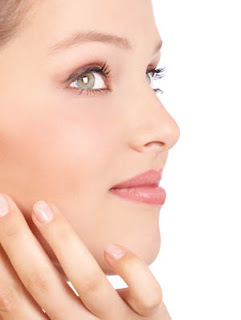Your skin is one of the best, and certainly most visible, signs of health. Dry skin, oily skin, papery skin, acne, and redness or ruddiness can all be clear signs of poor health inside your body - usually caused by consuming an unhealthy diet which doesn't include adequate skin-healthy vitamins and minerals. To attempt to treat skin issues, most people will often turn to topical cosmetics, including soaps, creams, scrubs, exfoliants, and toners. However, trying to treat skin blemishes with chemical-laden products does not address the actual, underlying cause of the problem, which is generally poor nutrition and overexposure to poisons and toxins found in food and beauty products.
Research has found that skin reacts especially well to particular vitamins, minerals and other antioxidants that help to strengthen and nourish skin, making it look more young and healthy. Following are some of the best vitamins and minerals for maintaining clear and healthy skin:
Silica is a mineral that helps to make the body's connective tissues stronger and is necessary to keep skin healthy. A deficiency of silica can cause skin to lose its elasticity and can disrupt healing.
Zinc is a vital component for maintaining healthy skin, particularly for those with acne. Acne can actually be a sign of a zinc deficiency. Zinc works by regulating the production of skin oil and hormones that contribute to acne. It is also necessary for healthy functioning of the immune system function.
Omega-3 Fatty Acids are excellent for helping to treat dry, inflamed skin and whiteheads and blackheads. Essential Fatty Acids, such as Omega-3s play a vital component in skin repair, moisture content of skin, and elasticity. The body does not make its own essential fatty acids so they have to be obtained via diet.
Selenium is a powerful antioxidant mineral which is responsible for maintaining the elasticity and flexibility of tissues. It also works to guard against cell damage caused by free radicals and has a strong correlation with a lowered risk of breast cancer. It is thought that it might have an important role in the prevention of skin cancer, as it acts to guard the skin from UV damage.
Vitamin C is particularly good for lowering damage caused by free radicals. Free radicals damage and destroy both collagen and elastin - the tissue fibers that form underlying skin structure - and can significantly contribute to the premature formation of wrinkles. It is also a nutrient that is very effective for guarding the skin from sun damage, particularly in conjunction with vitamin E.
Vitamin E is another very strong antioxidant that minimizes the damaging effects of sun to the skin. In conjunction with vitamin A, vitamin E is excellent at acting to guard against particular types of skin cancers. Vitamin E is also widely used to minimize the appearance of wrinkles, and, is good for soothing rough, dry skin.

No comments:
Post a Comment